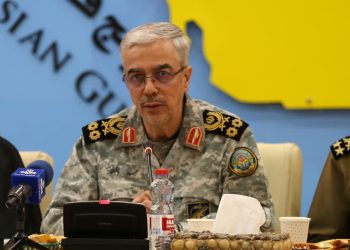Iran Nuances has learned that the outcome of the recent Iran-US talks shall be determined imminently, perhaps even within the span of a few days. Consequently, should the negotiations proceed as envisioned, the anticipated prisoner swap between Iran and the United States could transpire in the coming days.
Of late, Iran and the United States embarked upon indirect dialogues via Oman and Qatar, addressing the release of Iran’s frozen funds in South Korea and the prisoner exchange between the two nations.
Part of these discussions transpired in Oman, where Iranian and American delegates partook in indirect negotiations. On behalf of the US, National Security Council Middle Coordinator Brett McGurk participated in the talks, while Iranian Deputy Foreign Minister and Chief Negotiator Ali Bagheri Kani represented the Iranian side.
Concurrently, dialogues unfolded in Qatar concerning the release of $7 billion of Iran’s frozen assets in South Korea. Subsequently, on June 14, Mohammad Reza Farzin, the Governor of the Central Bank of Iran, visited Doha to hold supplementary discussions with Qatari banking authorities to ensure the smooth transfer of Iranian funds as per the agreement. Farzin, today from Doha, described the meeting with his Qatari counterpart as “successful”.
Reflecting on the recent advancements, Iran’s Vice President Mohammad Mokhbar informed reporters on June 14 that “Iran’s frozen money have been released in a number of countries and preparations have been made to unfreeze the rest of it. Hopefully, things will gradually come to a conclusion.”
Oman also has assumed a significant part in these talks, particularly concerning the prisoner exchange. If executed, this arrangement would see the release and return of four Americans detained in Iran via Oman, with several Iranians held in American prisons being likewise liberated.
To facilitate the process, Amir Saeed Iravani, Iran’s Ambassador to the United Nations, and Robert Malley, US Special Envoy on Iran, convened several times in New York. A source, who spoke on the condition of anonymity, told Iran Nuances that the pair have met in approximately “the same quantity as the number of fingers on one’s hand” – indicating around five meetings. Nevertheless, this source dismissed conjecture surrounding the attainment of an interim agreement as an alternative to the JCPOA.
Another source elaborated, “The talks about a prisoner exchange with the United States have been ongoing a couple of years but have been protracted, postponed, or made subject to certain conditions by the American side.”
The source added that the present moment serves as a “test of the American side’s earnestness in addressing the matter”.
Iran Nuances ascertained that the outcome of these talks rests on the imminent future, with the second source specifying, “If this agreement is implemented successfully, demonstrating the seriousness of the Western side, dealing with other issues – including the nuclear issue and the lifting of sanctions – may be possible, provided there is serious will on the opposite side.”
This source, too, refuted speculations of an interim accord.
A senior US official informed American journalist Laura Rozen that “steps, such as providing greater access to the International Atomic Energy Agency (IAEA), and releasing American citizens jailed by Iran, would advance prospects for a potential diplomatic process.”
Additionally, Israeli sources reported that “Prime Minister Benjamin Netanyahu told the Knesset foreign relations and security committee that the Biden administration has held indirect talks with Iran on a ‘mini agreement’ or ‘an understanding’ related to Iran’s nuclear program”.
However, a spokesperson for the US National Security Council rejected reports on an interim agreement between the US and Iran, labeling such speculation as “misleading and false.”
On June 12th, Ali Bagheri Kani convened with his French, German, and British counterparts in the city of Abu Dhabi, United Arab Emirates. Throughout this assembly, they traversed “a range of issues and mutual concerns.”
Iran and the US have so far reached understanding on matters of prisoner exchange and the release of Iran’s frozen assets in South Korea. Should these measures come to fruition, they could function as confidence-building steps, paving the way for additional discussions, particularly within the nuclear domain.
In tandem with these developments, Iran has forged pivotal agreements with the International Atomic Energy Agency (IAEA), encompassing an increase in monitoring through the installation of cameras at a nuclear facility in Isfahan and the closure of the case concerning one of the alleged locations, Marivan (Abadeh).
On June 11th, Iranian Leader Ayatollah Ali Khamenei told the staff members of Iran’s atomic organization, “You may want to reach agreements in some fields. Nothing is wrong with agreements, but the infrastructure of the nuclear industry must remain undamaged.”






